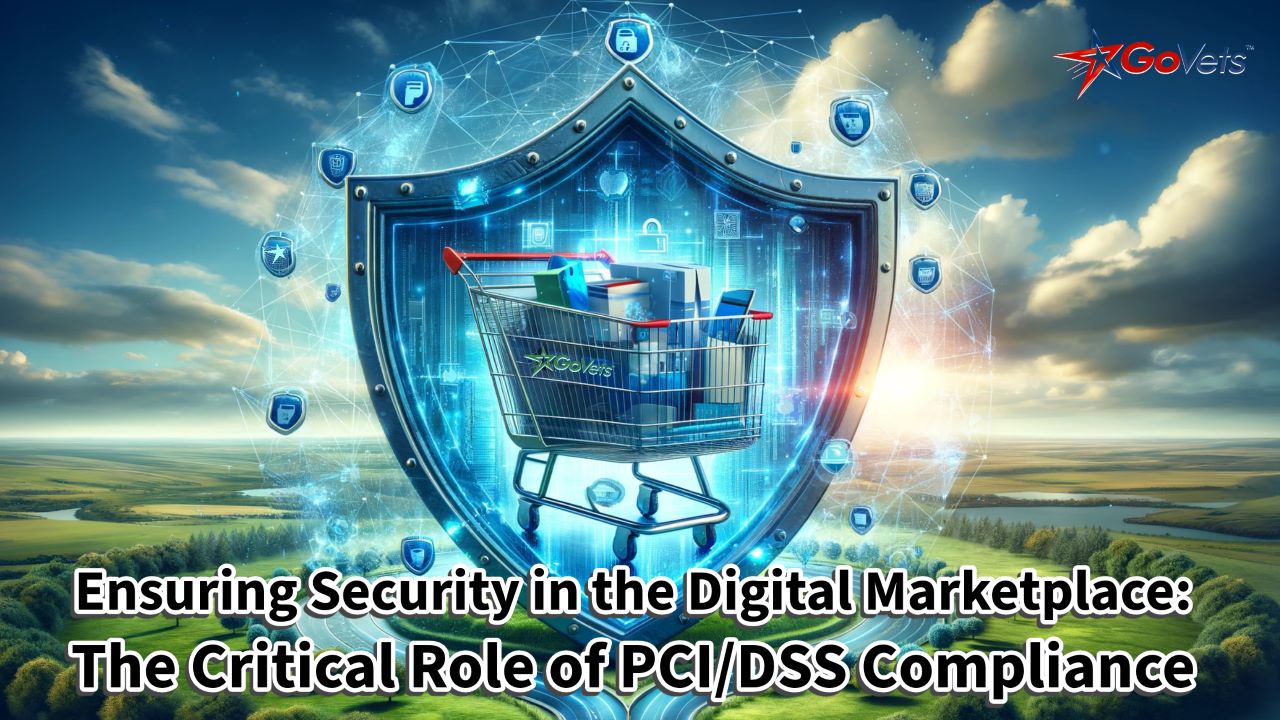Ensuring Security in the Digital Marketplace: The Critical Role of PCI/DSS Compliance

Introduction
In the digital age, where e-commerce has become the backbone of the retail industry, ensuring the security of consumer data is paramount. This is where the Payment Card Industry Data Security Standard (PCI/DSS) compliance comes into play, serving as a crucial benchmark for safeguarding payment card information. For e-commerce companies, adherence to PCI/DSS is not just a regulatory requirement; it's a fundamental component of building trust and ensuring the integrity of consumer transactions. In this comprehensive exploration, we delve into the importance of PCI/DSS compliance for e-commerce entities, guide consumers on what to look for when shopping online, discuss the risks of engaging with non-compliant platforms, and highlight how GoVets exemplifies the gold standard in PCI/DSS compliance from its inception.
The Importance of PCI/DSS Compliance for E-commerce Companies
PCI/DSS compliance is a set of standards and guidelines designed to ensure that all companies that process, store, or transmit credit card information maintain a secure environment. The significance of these standards for e-commerce businesses cannot be overstated. Compliance ensures the protection of sensitive customer information, reduces the risk of data breaches, and fosters a secure shopping environment. For e-commerce entities, this not only mitigates the potential financial liabilities associated with data breaches but also solidifies consumer confidence in their brand.
Moreover, PCI/DSS compliance is dynamic, evolving with emerging threats and technological advancements. E-commerce companies must stay abreast of these changes to ensure continuous protection of customer data. Failure to comply can result in severe penalties from payment processors and card networks, including fines, increased transaction fees, or even the loss of the ability to process payment cards.
What Consumers Should Look for When Shopping on E-commerce Websites
As consumers navigate the vast expanse of e-commerce platforms, discerning the security posture of these sites is crucial. Here are key indicators of a secure shopping environment:
- SSL Certificates: Look for "HTTPS" in the website's URL, which indicates that the site is secured using an SSL certificate. This ensures that data transferred between your browser and the website is encrypted.
- Trust Seals: Recognizable security badges or trust seals, such as those from the Better Business Bureau (BBB) or security vendors, signal a commitment to security and privacy.
- Clear Privacy Policies: A transparent privacy policy that outlines how your data is collected, used, and protected can be a hallmark of a trustworthy site.
- Secure Payment Options: A secure checkout process that offers encrypted payment methods, including the option to use payment gateways like Stripe, which do not require directly entering card details, can be indicative of a site's adherence to security best practices.
The Risks of Doing Business with Non-PCI/DSS Compliant Companies
Engaging with e-commerce platforms that neglect PCI/DSS compliance is fraught with risks. For consumers, this could mean exposure to identity theft, financial fraud, and unauthorized transactions. Non-compliance also suggests a broader disregard for data security, potentially leading to compromised personal information beyond payment details.
For the e-commerce industry, the repercussions extend further. Non-compliant companies face not only the direct financial impacts of fines and increased processing costs but also the intangible, yet profound, loss of customer trust. In an era where consumer loyalty is closely tied to data privacy and security, this can be a fatal blow to a brand's reputation.
GoVets: A Beacon of PCI/DSS Compliance from Day One
GoVets, the nation's largest veteran-owned online store, has prioritized PCI/DSS compliance from the outset. Recognizing the critical importance of security, trust, and risk minimization, GoVets has implemented robust measures to protect customer data across its vast array of products and services. This commitment extends beyond mere compliance; it's a cornerstone of GoVets' mission to provide a secure, transparent, and reliable shopping experience for its customers.
By integrating PCI/DSS compliance into its operational DNA, GoVets ensures that every transaction is conducted within a secure and encrypted environment. This proactive approach to security is complemented by GoVets' accreditation with the Better Business Bureau (BBB) and its status as a SBA Certified Service-Disabled Veteran-Owned Small Business (SDVOSB). These accolades further cement GoVets' reputation as a trustworthy and secure platform for consumers and business customers alike.
GoVets' unwavering commitment to PCI/DSS compliance is not just about meeting regulatory requirements; it's about leading by example in the e-commerce space. By maintaining the highest standards of data security and customer privacy, GoVets not only minimizes risk but also fosters a culture of trust and integrity that resonates with customers and partners.

Conclusion
In the rapidly evolving landscape of e-commerce, PCI/DSS compliance is a non-negotiable element of a secure and trustworthy digital marketplace. For e-commerce companies, adherence to these standards is critical in protecting customer data and sustaining consumer trust. Consumers, armed with knowledge of what to look for in secure e-commerce platforms, can make informed decisions to safeguard their personal information.
GoVets stands as a testament to the value of embedding PCI/DSS compliance into the fabric of e-commerce operations. From its inception, GoVets has set a precedent for security, trust, and consumer protection, illustrating that with the right priorities, e-commerce platforms can not only meet the demands of today's digital economy but also lead the way in ensuring a safer tomorrow for consumer transactions.

